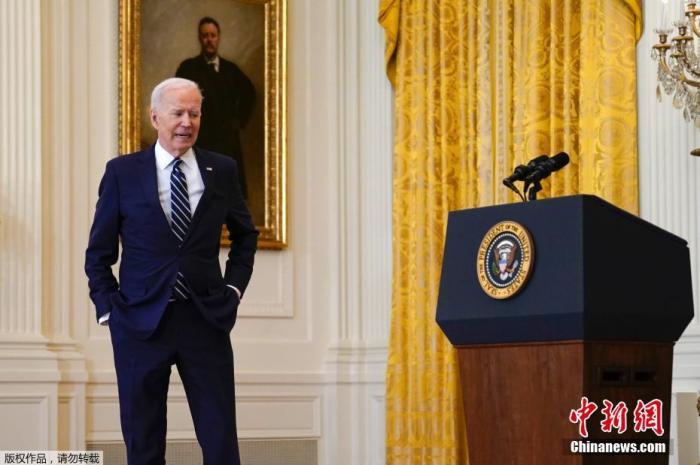Chinanews, May 27th, a comprehensive report, Russian President Putin and US President Biden will hold a face-to-face meeting in Switzerland on June 16.
According to the analysis, although the summit will discuss multiple topics, the two sides have continued to increase their "new feuds" despite many old grievances unresolved.
The United States and Russia have low expectations for the summit, and do not believe that a meeting can bring a breakthrough to the tension.
Data map: Russian President Putin.
K Palace said the summit is very important
But don’t expect the resumption of Russia-US relations
The Kremlin Information Bureau announced on May 25 that Russian President Putin and US President Biden will hold talks in Geneva on June 16.
The two sides plan to discuss the current situation and development prospects of Russia-US relations, strategic stability issues, and international hotspot issues such as cooperation in the fight against the new crown epidemic and mediation of regional conflicts.
Regarding the Biden Putin summit, the Kremlin said on the 26th that it cannot expect that Russia-US relations will officially restart by then, but it also emphasized that the summit itself is very important.
Kremlin spokesman Peskov said that there are mountains of problems in bilateral relations between Russia and the United States. Don't "excessively expect" the progress of this summit, but also said that the talks themselves are still very important.
At that time, the two sides will have the opportunity to exchange views and compare positions on issues of common concern, including issues of strategic stability and arms control.
He also said that the final decision on the delegation’s epidemic prevention requirements at the US-Russia summit will be made by experts. “The most important thing is the safety of the two heads of state.”
Data map: US President Biden.
The United States frequently mentions sanctions lacking sincerity
Is it difficult for the summit to resolve substantive issues?
According to US media analysis, for the Putin Biden summit in June, Washington does not expect to achieve major results. It only hopes that the two sides can clarify each other's position and avoid misjudgment leading to conflict escalation.
According to analysis, before he took office, Biden tried his best to create a "tough on Russia" image to show that he is different from former President Trump.
When he met Putin as Obama's vice president in 2011, he said that Putin "has no soul"; in March 2021, he publicly said that Putin is a "killer" in an interview, which aroused strong dissatisfaction with Russia.
In April, Biden announced the expulsion of 10 Russian diplomats and imposed a new round of sanctions against Russia on the grounds of "Russian interference in the US election" and "launched cyber attacks."
Although he offered to hold a face-to-face meeting with Putin and claimed that he could have adopted stricter sanctions, the outside world generally believes that the United States lacks sincerity.
In addition, with regard to the "North Stream 2" project carried out in cooperation between Germany and Russia, although the United States announced last week that it would lift sanctions on Russian and German-related companies and persons in charge, U.S. congressmen from both parties have criticized Biden's actions against Biden. Feeling dissatisfied, the Republican Party took the opportunity to accuse Biden of "weakness towards Russia."
Rogov, director of the American and Canadian Institute of the Russian Academy of Sciences, analyzed on the 25th that there are different small groups and factions within the Biden administration. Some people will oppose the consensus reached by the United States and Russia. Therefore, the outcome of the summit next month is unpredictable and may not be able to resolve substantive issues.
He believes that the Biden administration may not lift the sanctions against Russia, and the economic pressure facing Russia may continue to intensify.
But on the issue of arms control and strategic stability, the two sides are still expected to reach a certain consensus.

